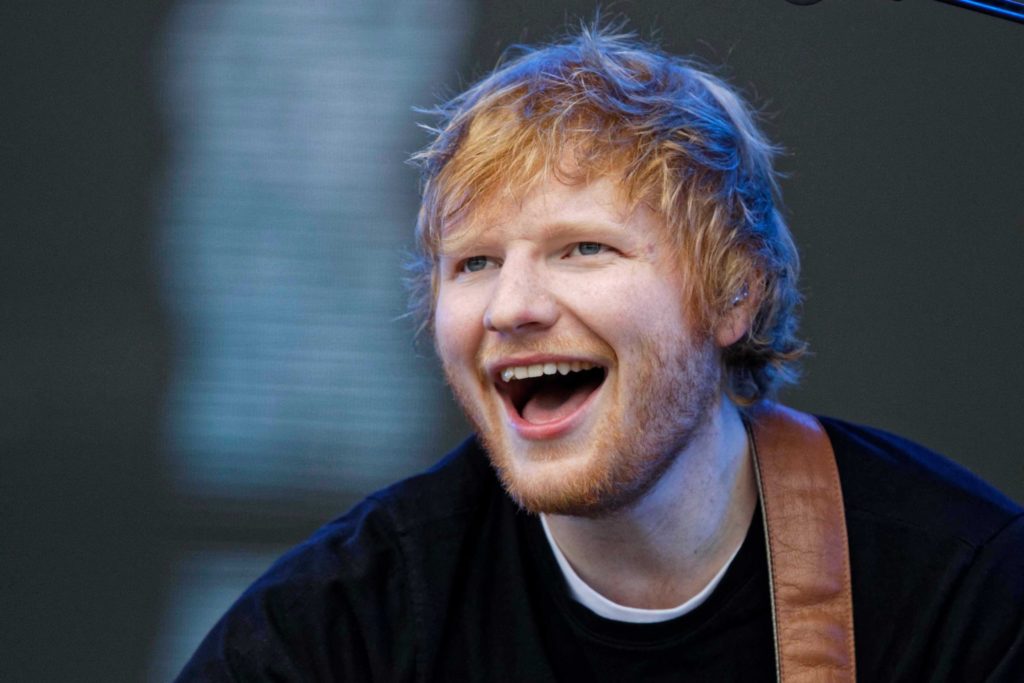At the height of perestroika in the West, everything Soviet was fashionable, including in the field of popular music. Even if none of our "variety wizards" managed to achieve star status there, but some people managed to rattle for a short time. Perhaps the most successful in this regard was a group called Gorky Park, or as it was called over the hill Gorky Park.
"Gorky Park" - messengers of rock from the country of the Soviets
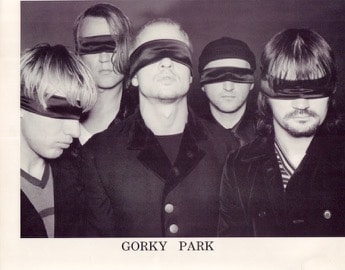
The birth of the group
This project was conceived and successfully "cranked" by one of the most famous musicians in the USSR and then-starting producers Stas Namin. He guessed to take advantage of the moment of political "thaw" in the international arena and develop the export version of the Soviet hard-and-heavy in the western direction.
To the credit of the legendary member of the "Flowers" ensemble, in order to achieve this goal, he chose really strong musicians who managed to play and gain skills in many reputable bands.
Frontman, vocalist Nikolay Noskov and solo guitarist Alexei Belov collaborated with composer David Tukhmanov before the Gorky Park group in the early 1980s. The result of their activities was the rock group "Moscow" and the cult album "UFO".
Bassist Alexander Minkov (later Marshal) played music for some time in the Araks group.
Guitarist Yan Yanenkov was a member of Stas Namin's group for several years.
Drummer Alexander Lvov stood at the origins of the famous Aria group.
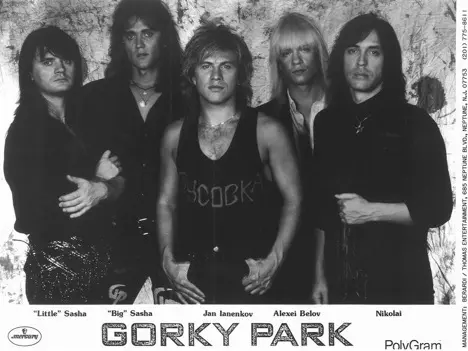
They began rehearsing in the spring of 1987 in Namin's studio, located in the Gorky Park of Culture and Leisure. They did not think long about the name and named the new team in honor of the place where they gathered for rehearsals.
The songs were composed in English, and in the fall they went to give concerts.
After a joint performance with the Germans from the Scorpions group, some Western producers drew attention to the Soviet glam metallers. A year later, and with the assistance of Jon Bon Jovi, a contract was signed with Polygram.
Planned-unexpected success of the Gorky Park group
At the start of 1989, the guys began to record their debut album, and by August it was already ready. For its advertising support in New York, they shot a good video sequence for the songs My Generation (The Who's cover version) and Bang. The last song hit the MTV chart and stayed there for 2 months, reaching the third position of the hit parade. The album itself peaked at number 80 on the Billboard 200.
Among the "pearls" mentioned above on the disc, it is worth noting the composition Peace in Our Time - a gift to Moscow friends from musicians from the famous Bon Jovi band. The influence of the American comrades here was felt to the naked ear.
On the wave of recognition, the Gorky Park group went on tour in America, dropping by at home to participate in the Moscow International Festival at the Luzhniki Sports Complex (Rock Against Drugs). The guys went on stage in “a la russe” outfits, with balalaika-shaped guitars, waving the flags of the USSR and the USA on the stage.
In 1990, the group held a large tour of the States, the performances were broadcast by the music channels of American television.
A year later, the Gorky Park group won the Scandinavian Grammy Award as the best international team. At the same time there were tours in Denmark, Sweden, Norway, and also Germany.
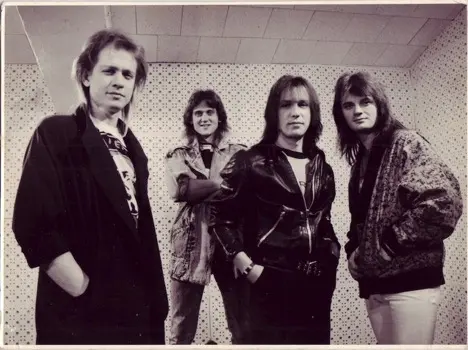
Everything seemed to be going well, but serious quarrels began within the team. Firstly, the group left Namin's care, and secondly, Noskov decided to return to Russia, and the rest of the participants wanted to stay in the USA.
Second album
After parting with Noskov, the vacant position of the vocalist was taken by Sasha Minkov-Marshal, who managed to sing and play bass. The band started recording their second record, codenamed Gorky Park II. Subsequently, it was renamed to Moscow Calling.
Some famous guests appeared in the studio along with the main "combat units", for example: Richard Marks, Steve Lukather, Steve Farris, Dweezil Zappa and others.
The album premiered in 1992 and America was not impressed. But he was incredibly loved by the Danes - there he won the status of platinum. In Russia, the work was accepted with restraint, many experts and ordinary fans said that Marshal sings no worse than Noskov.
The relative success of the Moscow Calling group provided an opportunity for the group to gain financial independence. The guys set up their own studio in Los Angeles and began to work for their own pleasure, without the supervision of "adults".
Stare and Protivofazza albums
The relative freedom of creativity and material security did not give the group the expected dividends. The former already modest popularity gradually decreased.
Immediately after touring Russia in 1994, the quartet worked on the creation of the third disc. At first, the album was going to be called Facerevers ("Face inside out"), but later they chose Stare ("Look") after the name of the very first song on it.
Among the invited guests there were: Alan Holdsworth, Ron Powell, the Russian National Symphony Orchestra. In addition, the organist Nikolai Kuzminykh was included in the composition.
The release went on sale in 1996, and after this event, new tours began across the expanses of the fatherland. In the same period, a collection of the best songs was released by Moroz Records.
Two years later, the guys announced the fourth and last studio album Protivofazza. It included material that was rejected when creating Stare. As a result, the album turned out to be musically ambiguous, and the audience reacted coolly to it.
In America, the musicians were no longer held back, and they decided to return to their homeland. The group's plans were to record a live album, and the inclusion of several songs in Russian was implied. But all this was not destined to come true ...
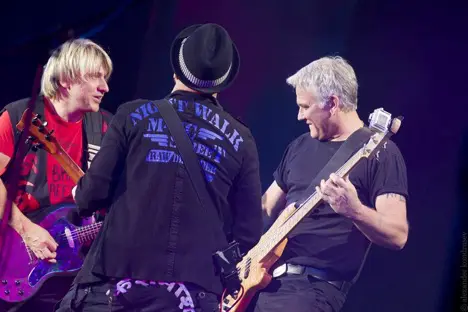
Decay of the group
At the end of 1998, for the sake of solo work, Alexander Marshal left the group, and then Yanenkov and Lvov. Left virtually alone, Alexei Belov recruited a new line-up, but it already looked like agony.
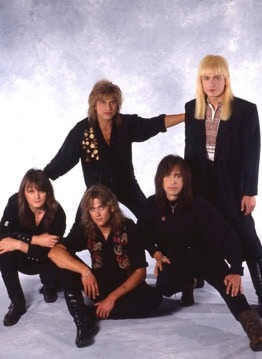
In 2001, the breakup of the ensemble was officially announced.
After that, the guys reunited for one-time performances, but they didn’t aim for something serious anymore ...


